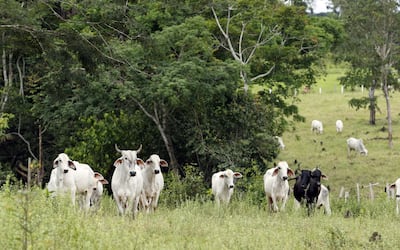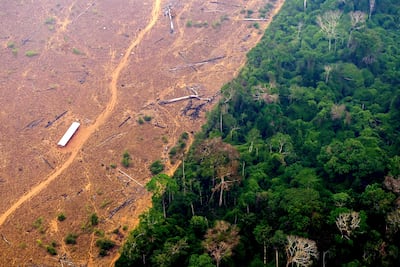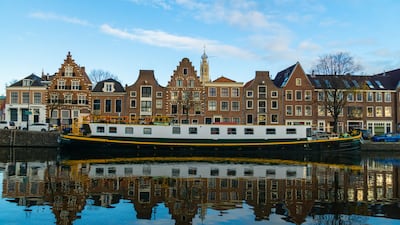Travellers visiting Haarlem in the Netherlands soon won't see any public advertisements encouraging meat eating.
That's because the city, which lies 20 kilometres west of Amsterdam, will become the world's first to ban meat advertising.
Dutch authorities in the progressive city have proposed a law to prohibit all advertising promoting meat in a bid to help reduce the impact of climate change.
Meat has since been added to a list of products deemed to contribute to the climate crisis, which also includes fossil fuels and flights.

The ban will come into effect in 2024 and will extend to advertising in all public spaces, including on public buses and bus stops.
Known for its leafy streets, winding canals and museums, Haarlem is the capital province of North Holland.
Pre-pandemic, it attracted more than five million visitors a year and is popular with travellers visiting the Netherlands for the annual Formula One Grand Prix, which is held in Zandvoort, only 20 minutes away.
Authorities will be hoping to lead by example by banning the promotion of meat, something that has long been linked to climate change.
Ziggy Klazes, a councillor from the GroenLinks party, who drafted the motion, said that she had not known the city would be the world’s first to enforce such a policy when she proposed it, reports The Guardian.
“We can’t tell people there’s a climate crisis and encourage them to buy products that are part of the cause,” Klazes said on local radio channel Haarlem105.
“Of course, there are a lot of people who find the decision outrageous and patronising, but there are also a lot of people who think it’s fine.

The amount of meat consumed in the Netherlands currently stands at 89.3 kilograms per person, above the global average.
Its production puts immense pressure on Earth’s ecosystems as meat requires more energy, water and land to produce than almost any other food source.
The UN says that livestock generates more than 14 per cent of all man-made greenhouse gases, including methane. It also accounts for mass deforestation in places like the Amazon rainforest to make room for grazing.
That's well above the estimated 3 per cent of greenhouse emissions that aviation — an industry that is routinely criticised for its environmental impact — produces.
A 2022 study from the World Resources Institute found that consumers are easily “nudged” to increase their uptake of lower carbon, plant-rich dishes when restaurants and supermarkets display “thoughtfully framed environmental messages”.


